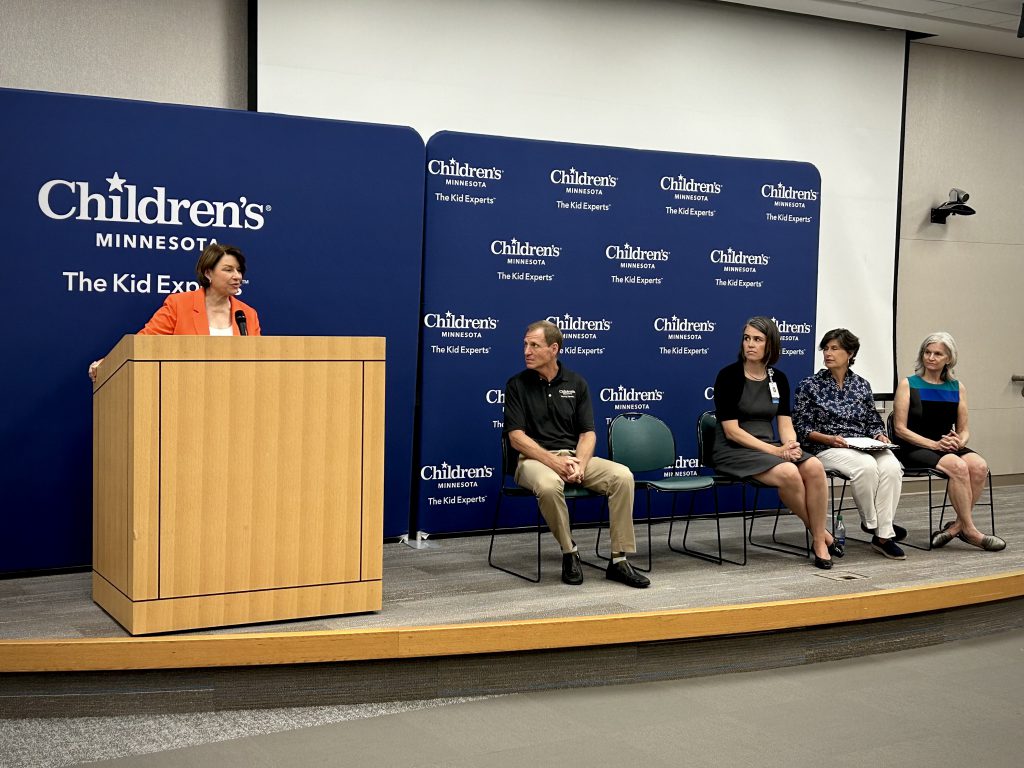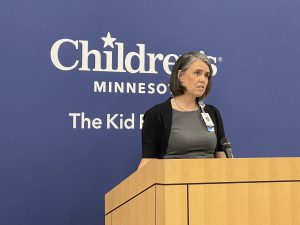Children's Minnesota in the News
On Sunday, July 30, The Kid Experts® at Children’s Minnesota welcomed Sen. Amy Klobuchar (D-Minnesota) to its Minneapolis hospital for a press conference on the Drug Shortage Prevention Act. This bipartisan bill would require manufacturers of over the counter and prescription drugs to notify the Food and Drug Administration (FDA) when they are unable to meet demand to better address and prevent shortages as well as stabilize the supply.
Children’s Minnesota, along with hospitals across the nation, is experiencing a critical shortage of two life-saving chemotherapy drugs — cisplatin and carboplatin. In children, these drugs are used to treat solid tumors and brain tumors such as Wilms tumor, neuroblastoma, osteosarcoma, medulloblastoma and others. Children’s Minnesota pharmacists are working to obtain as much of these drugs as possible as well as conserve the supply on hand.
“These shortages are obviously unacceptable,” Sen. Klobuchar said. “A cancer diagnosis is one of the scariest things a person can experience. That fear should never be compounded by the possibility that your chance of survival might be lower than it otherwise would be because of drug shortages.”


Dr. Marc Gorelick, president and CEO of Children’s Minnesota, and Dr. Sue Kearney, medical director of our cancer and blood disorders program, joined Sen. Klobuchar at the press conference.
“We are so grateful to Sen. Amy Klobuchar for championing legislation that will help the United States be more proactive in responding to drug shortages,” said Dr. Gorelick. “This is a critical systems-level change that will positively impact the patients and families we serve.”
Dr. Kearney added, “Cisplatin and carboplatin are the most effective chemotherapy treatments for kids with solid tumors and brain tumors. They do not have an equally effective alternative. And depending on the stage of a child’s cancer treatment, changing chemotherapy drugs can have multiple consequences, including a lower chance of survival, an increased risk for severe side effects and an increased likelihood of relapse.”
In July 2023, the Drug Shortage Prevention Act passed the Senate Health Education Labor and Pensions (HELP) Committee on a bipartisan vote of 17-3. The legislation will continue being part of congressional budget negotiations over the next several months.
